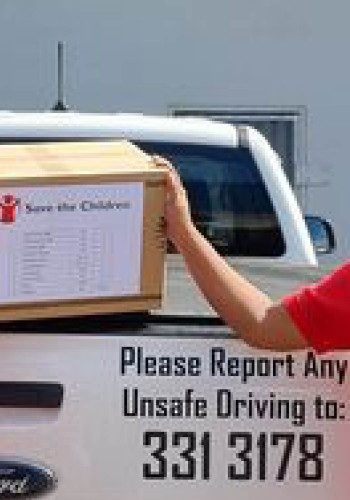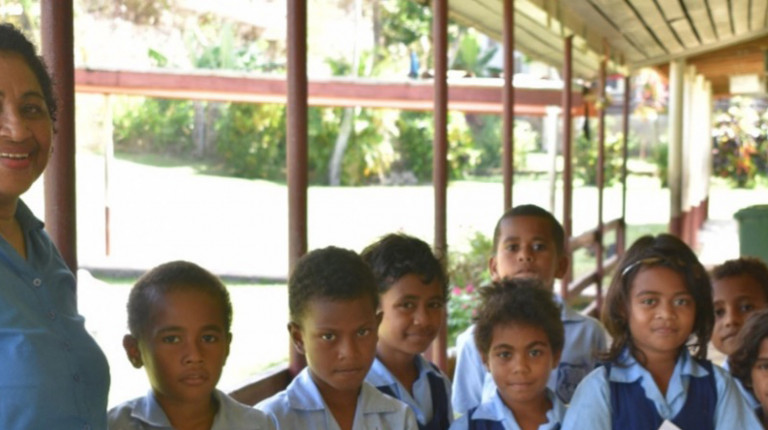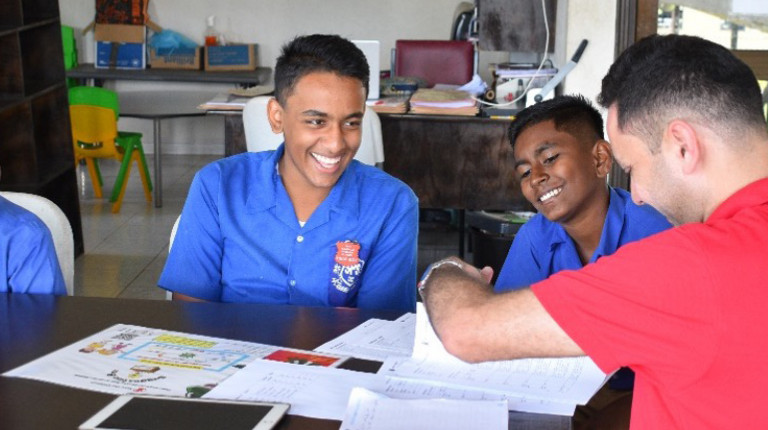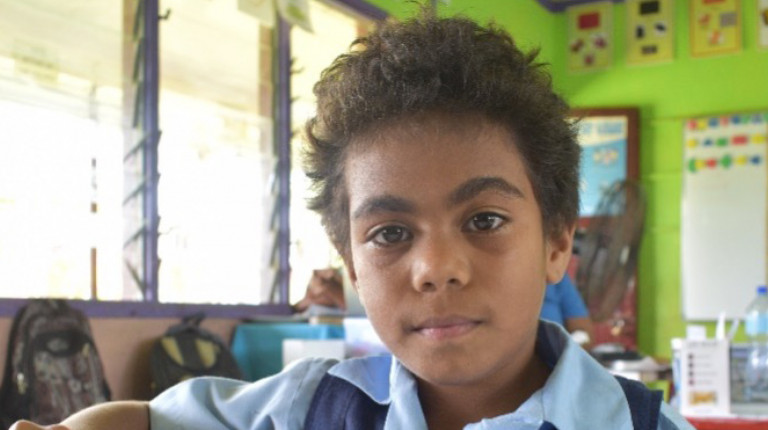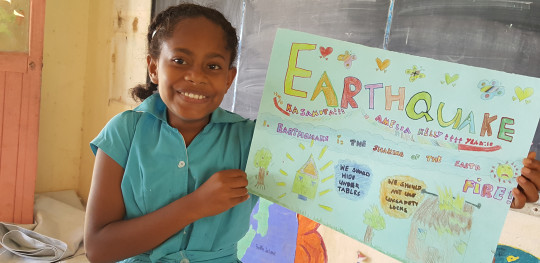Helping children in Fiji survive natural disasters
A year-round warm tropical climate is one of the main aspects of Fiji that attracts tourists to the island nation, but with it comes the potential for dangerous and life-threatening natural disasters. Children are at risk from cyclones, floods, droughts, earthquakes and tsunamis and, as one of the world's most vulnerable nations to climate change and climate-related disasters, this risk increases every year. Child-centred disaster risk reduction works to ensure that fewer children die or are injured as a result of natural disasters in Fiji.
Why children in Fiji need children-centred disaster risk reduction programmes?
The frequency of natural disasters in Fiji and the growing impact of climate change mean that for children in Fiji, learning to cope and recover from disasters becomes an essential life skill. According to the modelling in Save the Children’s 2021 report Born into a Crisis Climate, a child born in 2020 in Fiji will suffer through nearly four times as many heatwaves, and more than double the amount of river floods during their lifetime, compared to their grandparent’s generation (born in 1960).
For children in Fiji, learning to recover from disasters is part of life. Disasters tend to bring new hardships for children such as increased poverty, or a loss of education. Recovery conditions are often very stressful, with increased risks for children in terms of exposure to violence, abuse and exploitation.
Save the Children’s Child-Centred Disaster Risk Reduction programme
In partnership with the New Zealand Government’s Aid Programme, we are helping to make children and the communities they live in more resilient and better able to recover from natural disasters and the impacts of the climate emergency. We will work to ensure that fewer children die or are injured as a result of natural disasters in Fiji.
Through a variety of initiatives at national, regional and local level, including student, teachers and parent training, we are working alongside education authorities, teachers, parents, to strengthen and implement effective school safety systems across Fiji. We are equipping schools and students with the tools they need to respond to disasters, including go-bag kits and protective equipment, to help teachers, parents, children and wider communities become more resilient to disasters and the impact of climate change.
Our programming puts children at the centre of the response, ensuring they can identify and better understand the risks they face – at school, home and in the community – and how to mitigate these risks, so that they are better prepared to respond and recover. Long term, this means children in Fiji live and learn in environments that are safe from disasters, climate risks and COVID-19.
How we know we're making a difference
Our current CDRR programming builds on the foundations established in CDRR Phase One (2016-2020) where we helped support children to play an active role in reducing disaster risks. The project worked across 30 at-risk communities targeting the national, district and local levels (community, school, family, and child) to address gaps and achieved many of its outcomes in reducing disaster risks and strengthening the resilience of children and communities in vulnerable informal settlements and villages.
Since March 2022, CDRR has reached more than 14,000 beneficiaries through various activities, including equipping 3417 student families with Go-Bag kits and 214 teachers and staff with Personal Protective Equipment (PPE) to keep them safe from the pandemic after the school reopened.
One of the major goals of the programme – greater child inclusiveness and embedding children’s voices in national policy and decision-making processes – can be seen in stories such as Tokasa, a member of our Valenicina DRR Club, an initiative that brings child-centred approaches to strengthen resilience within national and local disaster preparation and management processes. Tokasa was chosen to speak at the official opening of the inaugural Pacific Resilience Meeting Youth Forum in 2021. By empowering the voices of children like Tokasa, we’re helping ensure children are at the table in important decision-making around future disaster and climate mitigation.
Who makes our programme possible
Through Aotearoa New Zealand’s International Development Cooperation Programme — Ngā Hoe Tuputupu-mai-tawhiti, Kiwis are providing children in Fiji and around the world with the chance to achieve a brighter future. Find out more here. This programme is also supported by our generous regular givers, whose monthly contribution to our life-changing work in Aotearoa and around the world make projects like this possible.
Save the Children works in partnership with the Fiji Government.
You may also be interested in
